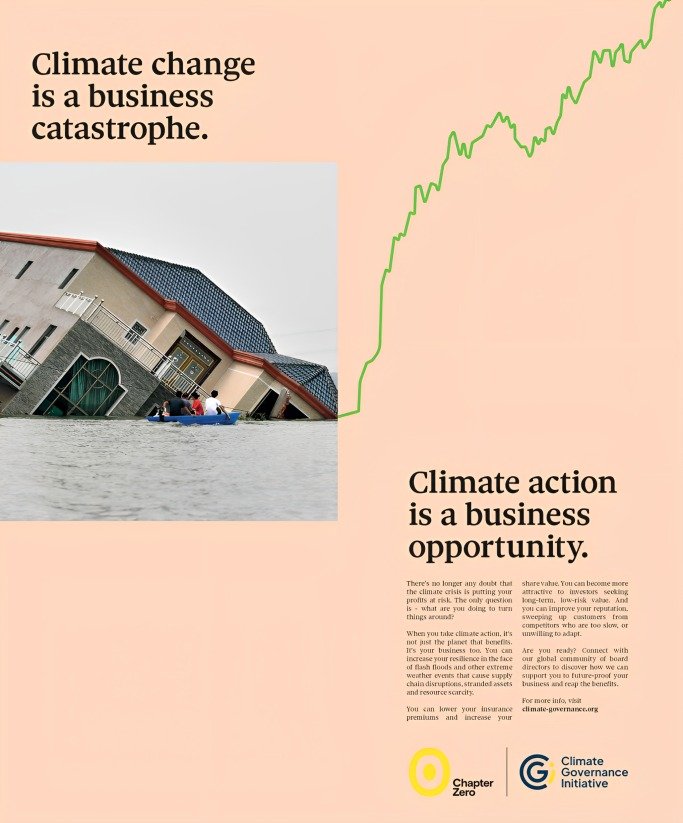
Sustainability and Profitability can go hand in hand: Shailesh Haribhakti in CGI’s FT Campaign
“Businesses that work for profit, people and planet are within our reach: leaders just need expansive thought, innovation and ambition to get there”, says Shailesh Haribhakti, Co-Founder and Chair of Bharat Clean Rivers Foundation, and Chair of Shailesh Haribhakti & Associates.
The heat is on to reach net zero
With people in every corner of the globe feeling the effects of frequent, adverse weather events, it’s undeniable that climate change is real and that it’s negatively impacting society and the world economy. Black swan events like the COVID pandemic have exposed just how fragile our global systems are, underscoring the urgent need for innovation and investment to make them more resilient and future-proof.
Businesses have the power to build systems that underpin a future where every individual and organisation can thrive at net zero. By working toward this shared goal, we will strengthen our organisations, secure our supply chains, and ensure the prosperity of our global society.
Corporate governance is entering a new era of opportunity
Robust C-suites and corporate boards can invest smartly and innovate ambitiously to secure transformative outcomes, not only for their companies and the wider business landscape, but for society at large.
“We are at a pivotal moment when choosing net zero means we’re choosing a sustainable, resilient future for everyone. To make this happen, making sustainability an economic incentive is essential to convincing the board to take climate action.”
You must have a full command of the facts, as well as bring to the table an authority, or moral capital, that comes with expertise and experience. Once shown how sustainability efforts can lead to cost savings and improved efficiency, companies are often more readily able to embrace climate initiatives.
Once a board has the engagement of its members, it must encourage them to think big. Climate and broader sustainability governance builds and strengthens through the large ideas that then percolate down into actionable measures at a ground level. A big vision that comes with concrete actions motivates each person to naturally move towards net-zero targets: enfranchising the whole business to make a difference.
When the level of its ambition is agreed at the board-level, and a roadmap is in place to direct its activities, it’s important to innovate two-fold:
1. Innovate internal governance structures to ensure that there is a strong audit committee and integrated reporting procedure; and
2. Invest in innovations to find smart and effective solutions to the most pressing climate issues in your business and sector.
Internally, audit committees are central to ensuring transparent climate-related reporting, which avoids greenwashing and drives meaningful progress towards sustainability goals. They play a pivotal role in assuring high-quality climate and ESG adherence. Integrated reporting provides a forward-looking view that helps companies align their long-term strategies with sustainability objectives. Integrated reporting, the audit committee, and an aspirational vision are the most powerful tools to drive climate action within a business. Such an approach can work well for the sustainability efforts led by large conglomerates such as Holcim.
Externally, boards are also moving to adopt innovations such as AI software to extend their capacity beyond human cognition. This is enabling them to perceive patterns, simulate futures, and test strategies before committing to them. Members still play an important human role in interpreting, prioritising, and embedding purpose and ethics into climate actions, but by working with AI, boards can make more informed decisions at a faster pace, in line with the speed and seriousness of the issue at hand.
Strong leadership drives meaningful progress
Our collective north star must be to reach net zero: to get buy-in from our organisations’ leadership and governance structures, turn to renewable power, and invest in further innovation. Corporate governance has a pivotal role in anticipating change, steering through it, and ensuring that progress serves the greater good.
Strong leadership evolves and fosters resilient companies. In turn, these companies strengthen the wider sector and global economy by setting high standards for risk management, innovation, and business adaptability. This robustness supports whole supply chains, drives sustainable growth across markets and assures investor confidence, all of which are vital to maintaining functioning and stable societies.
In the very near future, the only successful businesses will be those that not only future proof themselves, but guide society towards embodying a resilient future.




